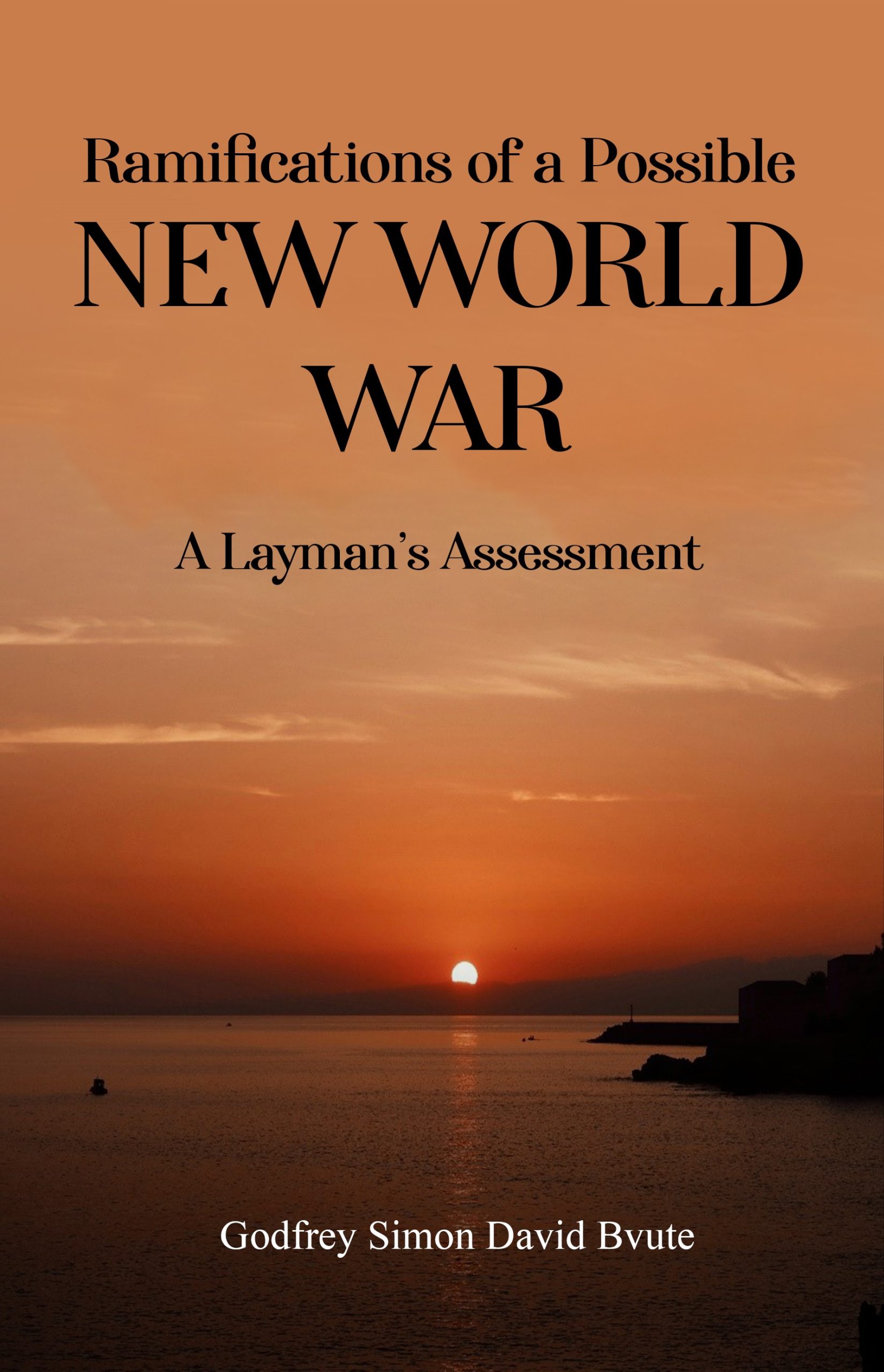As global tensions intensify, particularly around the Ukraine war and escalating East-West hostilities, nations worldwide are being nudged—if not pushed—into choosing sides. But should Africa, a continent still healing from the scars of colonization and Cold War interference, allow itself to be drawn into another global conflict? Godfrey Simon David Bvute’s thought-provoking book, Ramifications of a Possible New World War: A Layman’s Assessment, offers a strategic, historical, and deeply human-centered perspective on why the answer should be a resounding no.

A History of Being Caught in the Crossfire
Throughout the Cold War, Africa was a chessboard where superpowers played proxy wars. From Angola to the Congo, African nations paid the price in blood, displacement, and stalled development. Bvute carefully traces this history, warning that today’s ideological fault lines—between the West and powers like Russia and China—are eerily familiar.
He argues that Africa must learn from the past and avoid being used again as a pawn in geopolitical games that serve no African interest. Unlike in previous global conflicts, African nations now have stronger regional institutions, more integrated economies, and growing political awareness. These must be used strategically to safeguard the continent’s sovereignty and peace.
The Danger of Forced Alignments
The pressure on African nations to “pick a side” is subtle but real—through aid conditions, trade dependencies, and diplomatic influence. Bvute’s book lays bare how these methods are often wrapped in moral or ideological justifications like “defending democracy” or “resisting tyranny,” when in reality they mask power struggles between global giants.
Aligning with either side risks dragging Africa into conflicts far beyond its control and interest. Moreover, doing so compromises Africa’s emerging independence in global affairs and reduces its credibility as a voice for peace and multilateralism.
Africa’s Strategic Position: Neutrality with Wisdom
Bvute doesn’t call for apathy. Instead, he advocates for “neutrality with wisdom”—a stance that allows Africa to engage with all global powers based on mutual respect and benefit, rather than allegiance or dependency. Neutrality doesn’t mean silence, but rather active participation in peace processes, mediation, and championing nonviolent solutions.
African countries, he argues, must assert their own values—Ubuntu, communalism, and human dignity—and resist imported ideologies that conflict with these traditions. In doing so, Africa can emerge not just as a bystander, but as a builder of global peace.
A Voice for Peace, Not War
Africa’s strength lies in its moral authority, youthful population, and vast untapped potential. Bvute makes a compelling case that Africa should leverage these assets not to fight in others’ wars, but to lead in peacebuilding and sustainable development.
Africa’s neutrality can be its greatest asset—not a sign of indecision, but a badge of independent thought. By resisting alignment in this new age of global tension, Africa can stand for something much greater: a future free from war.
Final Thought
Should Africa take sides in a global conflict? According to Ramifications of a Possible New World War, the smart answer is: no—but Africa must take a stand. A stand for peace, dialogue, and a world order that values cooperation over confrontation.
This book is a must-read for anyone concerned with Africa’s future, global security, and the fragile fate of our world. Pick up your copy today and be part of a movement that chooses peace over polarization.